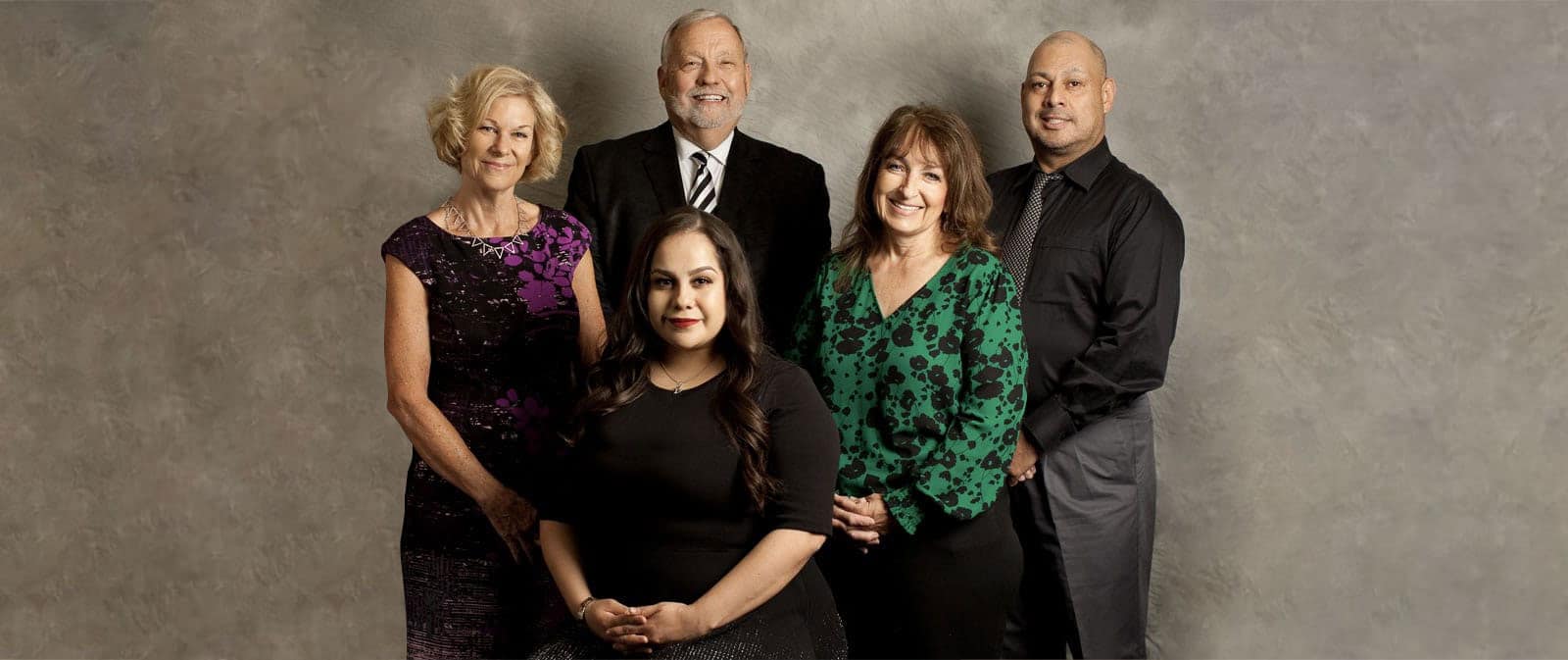How to get workers’ compensation as a professional athlete in Arizona
As with all workers in Arizona, a sports injury generally must occur within the course and scope of employment in order to be compensable under this state’s workers’ compensation law. For athletes, an injury is considered “within the course and scope of employment” if it happens while:
- Playing a game
- Traveling with the team (traveling to/from home usually isn’t covered)
- Practicing or training
- Any other activities required by the team or by the player’s contract
Cumulative trauma injuries, which are injuries that don’t happen in a single traumatic event but rather as a result of multiple small injuries, may also be covered by workers’ compensation after being diagnosed by a doctor or other medical professional.
Since Arizona law prevents professional athletes from filing a claim in another state (even if that’s where the injury occurred), Arizona athletes must pursue benefits through the Industrial Commission of Arizona within a specific time period after the injury.
While other states have different time limits, Arizona sports-related work injury claims must be filed in writing with the Industrial Commission of Arizona within 1 year from the date the injury was discovered.
There are few exceptions to this deadline, and players should NOT rely on the team to file their claim. A professional Arizona athlete doesn’t have to live in Arizona year-round to make a claim in this state, so long as they are employed here.
What about college athletes — are they covered under workers’ compensation?
Typically, the type of healthcare a college athlete receives depends on the individual school and program. The NCAA and other collegiate athlete organizations don’t provide compensation for college athletes injured while competing, practicing or training. The NCAA also doesn’t force member colleges and universities to pay the healthcare costs of their athletes. Most schools have no contractual obligation to treat injuries or illnesses that result from playing for that college.
If a player is injured, their own healthcare insurance (or their parents’ insurance) is considered the main source of compensation for the athlete’s injuries. In fact, the term “student athlete” was expressly coined to allow colleges to avoid liability for sports-related accidents and injuries. While this might seem surprising and unfair, unfortunately the system is setup to advantage colleges and collegiate sports organizations at the cost of students and their families.
Read more: How to Apply for Workers’ Comp
Arizona makes compensation more difficult for injured athletes
In 2013, Arizona lawmakers passed a law that prevents professional athletes in Arizona from filing for workers’ compensation in other states. Previously, an injured athlete could file a workers’ compensation claim in another state if they played some games there and were injured. However, lawmakers cited claims that pro athletes were filing claims in more lenient states (most notably, California) to obtain benefits for cumulative injuries more easily.
Unsurprisingly, this law was strongly pushed by the National Football League and Major League Baseball in order to limit their liability for degenerative occupational injuries and illnesses experienced by retired players seeking compensation. The result of this law passing is injured athletes being forced to comply with more stringent standards of proof and stricter laws when filing a workers’ compensation claim.
Are college athletes, NFL players and other professional athletes covered by workers’ compensation?
The growing concern about the danger of sports-related concussions has increased in recent years due to a rising number of lawsuits filed by the parents of injured high school and youth football players. However, the fact is that sports injuries and accidents have been a serious problem for decades, especially among the highly competitive world of collegiate, semi-pro and professional sports.
Some of the most dangerous sports with the highest rates of injury include:
- Football
- Hockey
- Basketball & softball
- Lacrosse
- Cycling
- Soccer
- Professional racing
- Wrestling
- Swimming
- Baseball
- Volleyball
- Skiing, snowboarding & surfing
- Boxing & MMA
- Skateboarding
- Rugby
- Weightlifting
When a college or pro athlete gets seriously injured, it doesn’t just mean the end to a game or season — it could mean an end to their career. And unfortunately, the insurance companies representing sports organizations like the NFL, MLB, MLS and NBA often put profits above players by fighting to reduce or deny legitimate sports injury claims.
For this reason, we recommend contacting an experienced Arizona workers’ compensation attorney if you’re a professional or semi-pro athlete who was hurt as a result of your job.
At the Law Offices of Robert E. Wisniewski, we can make sure you receive full and fair compensation for your sports injury.
For 45 years, we have provided timely, dedicated representation to thousands of severely injured workers across Arizona—including players for the Arizona Cardinals, Arizona Diamondbacks, Arizona Coyotes and the Tucson Roadrunners.
Workers’ compensation is all we do, and we do it well.
Without professional representation, many injured workers fail to receive the justice and compensation they deserve.
In recent years, we’ve resolved over 50 workers’ compensation claims involving athletes, and we’ve been successful in almost all these cases—including players for the Arizona Cardinals, Arizona Diamondbacks, Arizona Coyotes and the Tucson Roadrunners.
If you were injured as an athlete, talk to us about your workers’ compensation rights. There’s no initial consultation fee to discuss your case with our experienced work injury lawyers and no upfront fees if you hire us to represent you. You only pay if we are successful in obtaining benefits for you.
It costs no more to have the best!
Integrity, Care and Compassion
“You have shown integrity, care and compassion concerning my case – as well as my self – personally, which most would not have bothered themselves with. This personal touch counts and I will definitely toot your horn for you whenever there is a need or opportunity to do so. Again, I thank you and I greatly appreciate what you have all done for me. You will all be in my heart and mind. Sincerely and with great appreciation.” – K.S.
Professional & college sports injury statistics
- Professional athletes were among just 5 occupations that had more than 1,000 injuries per 10,000 workers.
- There were more than 41,000 reported NCAA college football injuries from 2004 to 2009.
- Football players are nearly 7 times more likely to be injured during a game than in practice. The preseason has the highest injury rate compared with in-season and the postseason.
- Ligament sprains are the most common injury reported, accounting for more than 30 percent of all injuries, with the lateral ligaments of the ankle and medial collateral ligaments of the knee most commonly affected.
- Concussions make up 7.4 percent of all injuries in college football players.
Questions and answers about compensation for a job-related accident, injury or illness in Arizona
Most common injuries to professional athletes
Common examples of career-ending injuries athletes experience include:
- Spinal cord and back injuries
- Shoulder injuries
- Traumatic brain injuries
- Concussions
- MCL/ACL tears
- Strains, sprains and dislocations
- Fractures
- Groin pulls
- Knee injuries
- Shin splints
- Blood clots (lung embolism)
In addition to traumatic injuries, professional athletes often have higher rates of occupational illnesses long after they’ve hung up their jersey for the last time. Reports show that an increasing number of retired NFL players who have suffered concussions have later developed memory and cognitive issues such as dementia, Alzheimer’s, depression and chronic traumatic encephalopathy (CTE). Conditions like compartment syndrome, patellofemoral syndrome and tendinitis are also common among current and retired athletes.
In 2016, 38 former professional football players sued the NFL for workers’ compensation due to chronic traumatic encephalopathy, a lifelong and debilitating brain injury caused by repeated head trauma. Experts commonly cite helmet-to-helmet impacts as a major cause of CTE. However, shortly after filing suit, the players withdrew their joint case and instead pursued individual workers’ compensation claims in their respective states — sparking a lengthy, uphill legal battle for the players and their families.

Arizona Workers’ Compensation Guide
FREE E-BOOKWhat do you do if you’re injured on-the-job? Our free guide contains knowledge to help the injured worker understand the workers’ compensation application process.

Mr. Wisniewski has been recognized as the premier workers’ compensation lawyer in Arizona. He is the only claimants’ attorney recognized as a Fellow of The College of Workers’ Compensation.
"It costs no more to hire the best."
Our Arizona work injury attorneys can fight for your compensation
Were you injured on the field, in the weight room or while performing other job-related duties as a professional or semi-pro athlete? If so, don’t make the mistake of failing to pursue compensation out of fear it will hurt your career. You have rights under Arizona workers’ compensation law.
At the Law Offices of Robert E. Wisniewski, we can help you secure the full and fair compensation you deserve. We will help you file an injury claim with the Industry Commission of Arizona and fight to appeal a denied claim if necessary.
We’re prepared to use our experience, expertise, resources and passion to make sure you get the compensation you deserve.
Why hire our Arizona workers’ comp lawyers?
- We understand the special needs of an injured worker
- Trained and helpful staff
- Personal attention to clients
- Calls promptly returned
- Clients kept up-to-date on case
- State-wide service
- Aggressive & experienced representation
- Hablamos español
While our main law office is in downtown Phoenix, we handle workers’ compensation claims throughout Arizona – including Yuma, Kingman, Payson and Flagstaff.






